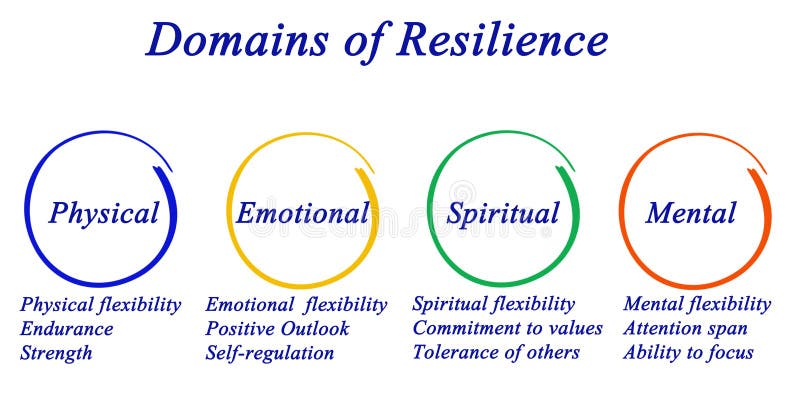Finding Strength In Adversity: A Practical Guide To Mental Resilience

Table of Contents
Understanding Mental Resilience
Mental resilience, also known as mental toughness, grit, or psychological hardiness, is the ability to adapt effectively to stress and bounce back from adversity. It's not about avoiding challenges, but about possessing the inner resources to navigate them successfully. Individuals with high mental resilience demonstrate several key characteristics:
-
The ability to adapt to stress and bounce back from setbacks: This involves viewing challenges as opportunities for growth rather than insurmountable obstacles. For example, someone with strong mental resilience might view a job loss not as a failure, but as a chance to pursue a more fulfilling career path.
-
Maintaining a positive outlook even during difficult times: This doesn't mean ignoring negative emotions, but rather maintaining a hopeful perspective and believing in one's ability to overcome challenges. This might involve practicing gratitude or focusing on small victories along the way.
-
Effective problem-solving skills: Mentally resilient individuals possess the skills to analyze situations, identify solutions, and take action to address problems. They don't get overwhelmed by difficulties; instead, they approach them systematically.
-
Strong self-awareness and emotional regulation: They understand their own emotional responses and can manage them effectively. They can identify triggers, regulate their emotions, and prevent them from overwhelming their ability to cope.
Cultivating Mental Resilience: Practical Strategies
Building mental resilience is a journey, not a destination. It requires consistent effort and the development of healthy habits. Here are some key strategies:
Developing a Growth Mindset
A growth mindset is the belief that abilities and intelligence can be developed through dedication and hard work. This contrasts with a fixed mindset, where individuals believe their abilities are innate and unchangeable. Cultivating a growth mindset is crucial for mental resilience:
-
Embrace challenges as opportunities for learning: View setbacks not as failures, but as valuable lessons and chances to learn and grow.
-
View failures as stepping stones to success: Analyze what went wrong, learn from your mistakes, and adjust your approach accordingly. Don't let failures define you; instead, use them as fuel for future success.
-
Focus on effort and progress rather than solely on outcomes: Celebrate your efforts and progress, even if you haven't achieved your ultimate goal yet. This helps build confidence and maintain motivation.
To foster a growth mindset, try journaling about your challenges and what you learned from them. Explore resources like Carol Dweck's book, "Mindset," or online courses on cultivating a growth mindset.
Building Strong Social Support Networks
Strong social connections are a powerful buffer against stress. Surrounding yourself with supportive individuals can significantly enhance your mental resilience:
-
Seek support from family, friends, or support groups: Don't hesitate to reach out to loved ones when facing challenges. Sharing your struggles can alleviate stress and provide valuable perspective.
-
Build meaningful relationships: Nurture existing relationships and actively work on building new ones. Meaningful connections provide a sense of belonging and support.
-
Practice active listening and empathy: Being a good listener and showing empathy towards others strengthens your relationships and builds reciprocal support.
The benefits of strong social support are immense. It reduces feelings of isolation, increases feelings of self-worth, and provides practical and emotional assistance during difficult times.
Practicing Self-Care and Mindfulness
Self-care is not selfish; it's essential for maintaining mental well-being and building resilience. Prioritizing self-care allows you to better manage stress and cope with challenges:
-
Prioritize sleep, healthy eating, and regular exercise: These fundamental pillars of well-being significantly impact your ability to cope with stress.
-
Engage in relaxing activities like meditation, yoga, or spending time in nature: These activities promote relaxation, reduce stress, and improve overall mental clarity.
-
Practice mindfulness techniques to stay present and manage stress: Mindfulness helps you focus on the present moment, reducing anxiety about the future and rumination about the past.
Even small acts of self-care, such as taking a walk in nature or listening to calming music, can make a significant difference in your mental resilience.
Developing Effective Coping Mechanisms
Developing effective coping mechanisms is crucial for managing stress and adversity. This involves identifying healthy ways to manage difficult emotions and situations:
-
Problem-solving techniques: Learn to approach problems systematically, breaking them down into smaller, manageable steps.
-
Stress management techniques (deep breathing, progressive muscle relaxation): These techniques help to calm the nervous system and reduce feelings of anxiety.
-
Emotional regulation strategies (journaling, cognitive reframing): Journaling helps to process emotions, while cognitive reframing involves challenging negative thoughts and replacing them with more positive and realistic ones.
Identifying and utilizing effective coping mechanisms allows you to navigate challenges more effectively and build resilience over time.
Recognizing When to Seek Professional Help
While building mental resilience is empowering, it's important to recognize when professional help is needed. Don't hesitate to seek support if you are struggling to cope with life's challenges:
-
Signs that indicate a need for professional support: Persistent feelings of sadness, hopelessness, anxiety, or overwhelming stress; significant changes in sleep or appetite; difficulty concentrating or making decisions; thoughts of self-harm or suicide.
-
Types of mental health professionals who can provide assistance: Psychologists, psychiatrists, therapists, counselors.
-
Resources for finding mental health support: Your primary care physician, online directories of mental health professionals, employee assistance programs (EAPs), and mental health helplines.
Seeking professional help is a sign of strength, not weakness. Mental health professionals can provide valuable support and guidance in developing coping strategies and building your mental resilience.
Conclusion
Building mental resilience is a journey that involves cultivating a growth mindset, building strong social support networks, practicing self-care and mindfulness, developing effective coping mechanisms, and seeking professional help when necessary. By consistently implementing these strategies, you can enhance your ability to navigate life's challenges, bounce back from setbacks, and build a more fulfilling and resilient life. Start by incorporating one or two techniques into your daily routine, and gradually add more as you build your mental toughness and psychological hardiness. For further resources on building your mental resilience, explore [link to relevant resource or blog post]. Take the first step today towards a stronger, more resilient you!

Featured Posts
-
 Trafic Portuaire D Abidjan Hausse Legere En 2022
May 20, 2025
Trafic Portuaire D Abidjan Hausse Legere En 2022
May 20, 2025 -
 Old North State Report May 9 2025 Top Stories And Updates
May 20, 2025
Old North State Report May 9 2025 Top Stories And Updates
May 20, 2025 -
 Vodacom Vod Exceeds Earnings Expectations With Strong Payout
May 20, 2025
Vodacom Vod Exceeds Earnings Expectations With Strong Payout
May 20, 2025 -
 Toxic Chemical Residues From Ohio Train Derailment A Building Contamination Investigation
May 20, 2025
Toxic Chemical Residues From Ohio Train Derailment A Building Contamination Investigation
May 20, 2025 -
 D Wave Quantum Qbts Stock Decline Thursday Reasons And Analysis
May 20, 2025
D Wave Quantum Qbts Stock Decline Thursday Reasons And Analysis
May 20, 2025
